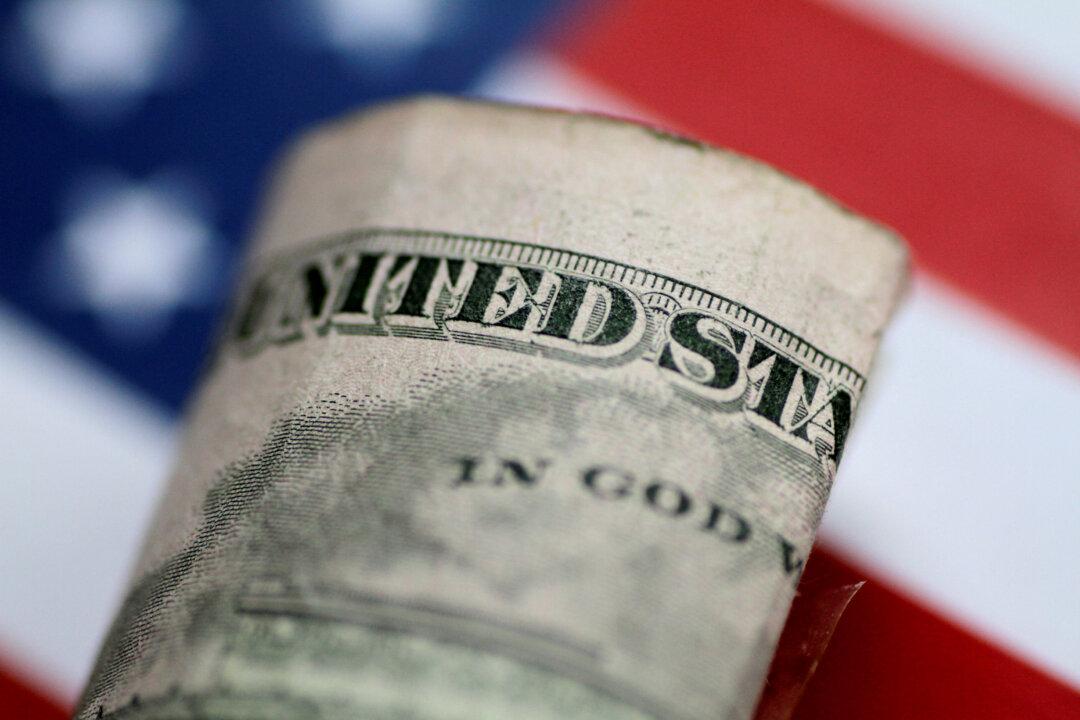LONDON—The dollar rose to a 16-month high on Nov. 12, as investors positioned for a Federal Reserve interest rate rise next month and concern about political risks in Europe put pressure on the euro and the pound.
The dollar has risen since the Fed kept interest rates steady last week and reaffirmed its monetary tightening stance. It remains underpinned by the robust U.S. economy. Fears about a no-deal Brexit and a growing rift in Europe over Italy’s budget helped the dollar extend its gains on Nov. 12.





